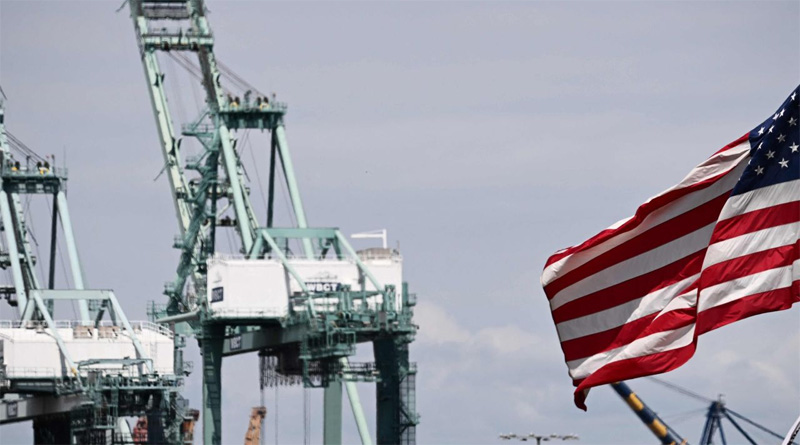Mexico Has Just Overtaken China As The Top Exporter To The U.S.
Bloomberg News is running a story saying Mexico has just eclipsed China as the largest exporter to the U.S. The rival news service is relying on a complicated formula, using the 12-month rolling average of the share of U.S. imports.
But, really, the U.S.’s southern neighbor has held the title for all of 2023. At MarketWatch, we like simpler calculations. Drawing on a quarterly series measuring trade on a balance-of-payments basis, Mexico took the lead in the third quarter of 2022.
The two series are not wildly different from one another. The data Bloomberg uses are more timely, based on documents collected by U.S. Customs and Border Protection.
The balance-of-payments data, meanwhile, are adjusted to be consistent with gross-domestic-product calculations, and the data are produced quarterly as opposed to monthly. A few differences: BOP data count as imports the purchases of goods abroad by the U.S. military or the fuel purchases made in foreign ports by U.S. air and ocean carriers; there are a few subtractions, as well.
Another report says that Mexico only narrowly edged out China, accounting for 15% of U.S. imports in July versus China’s 14.6% in the same month.
This comes just months after Mexican President Andrés Manuel López Obrador officially announced that Tesla (TSLA) – Get Free Report would build and operate a new factory in Mexico as soon as 2026.
Mexico Exports to United States was US$386.09 Billion during 2021, according to the United Nations COMTRADE database on international trade.
The main products that Mexico exported to United States are Computers ($28.3B), Cars ($26.7B), and Motor vehicles; parts and accessories (8701 to 8705) ($26.7B).
Mexico is the largest exporter of beer to the United States, with more than 360 million cases of Mexican beer entering the country.
Mexican drug traffickers are the primary transporters of the major narcotics imported into the U.S. The 2,000 mile shared border between Mexico and the U.S. is the entry point for a large percentage of these drugs.
According to the DEA Mexican TCOs (Transnational Criminal Organizations) are producing increased quantities of fentanyl and illicit fentanyl-containing tablets, with some TCOs using increasingly sophisticated clandestine laboratories and processing methods (i.e., laboratory grade glassware, unregulated chemicals, and industrial size tablet presses). DEA, working in conjunction with Mexican officials, has seized and dismantled numerous fentanyl pill pressing operations and fentanyl synthesis laboratories in 2018 and 2019, highlighting the role TCOs play in supplying the US fentanyl market. Fentanyl is smuggled across the U.S.-Mexico border in low concentration, high-volume loads, kilogram seizures often contain less than a 10 percent concentration of fentanyl.
TCOs are also increasingly producing wholesale quantities of illicit fentanyl pills and smuggling them into the United States. In December 2018, Mexican officials in combination with DEA authorities seized an illicit pill mill in Azcapotzalco, Mexico City. Law enforcement officials seized illicit fentanyl-laced oxycodone M-30 pills, suspected fentanyl powder, precursor chemicals and multiple other items related to the production of fentanyl-laced illicit pills. As with the Mexicali, Mexico fentanyl pill mill seized in September 2018, DEA reporting indicated the organization operating the pill mill in Mexico City is linked to the Sinaloa Cartel.

